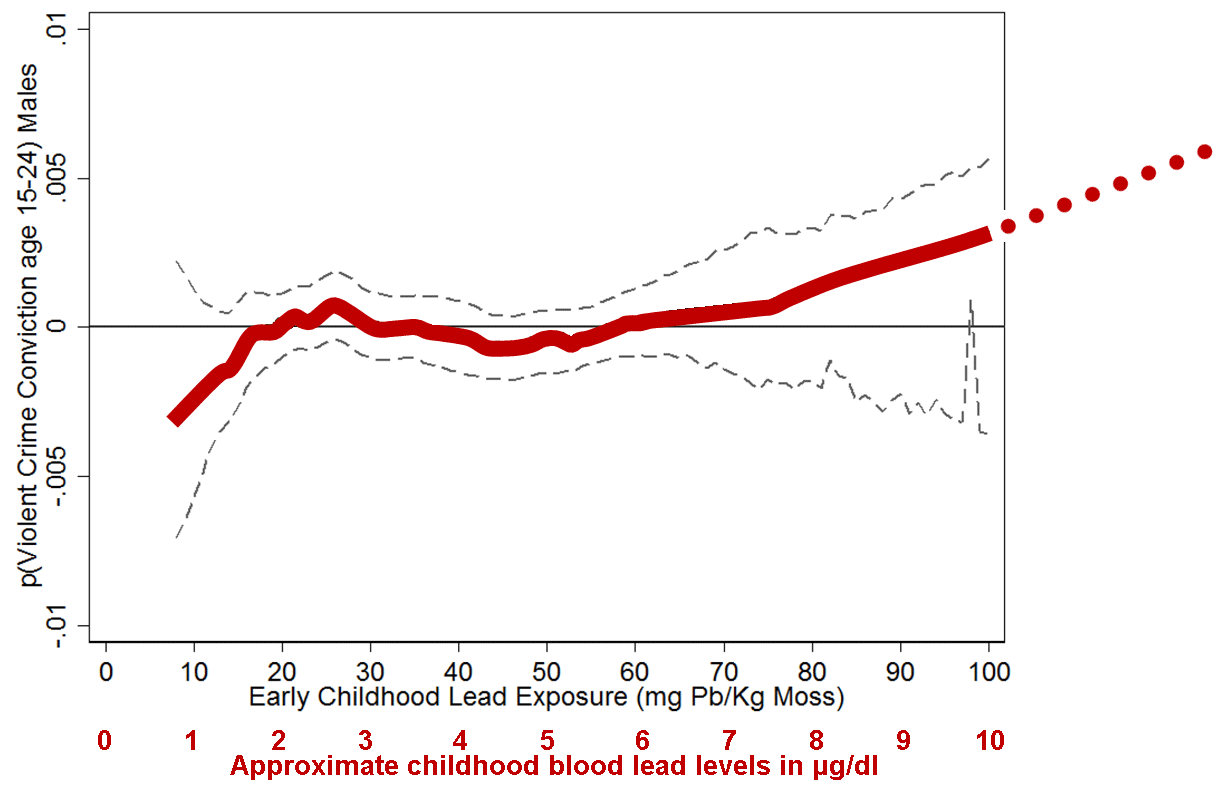Matt Yglesias points out today that a Swedish paper about lead poisoning in children has finally been accepted for publication, and this gives me an excuse to republish what I wrote a few years ago when it was still a working paper. Here it is.
Just as in the US, Sweden phased out leaded gasoline in the 70s and 80s, which caused lead poisoning in infants to decrease. Unlike the US, however, lead levels were already fairly low, so the Swedish team was able to measure the effect of changes not just from 30 ug/dl to 20 to 10, but from 10 to 5 to 2. What they found was that the impact of lead reduction does eventually flatten out, but it happens at very low levels. There are gains to be made by reducing blood lead levels all the way down to 2-3 ug/dl.
At the risk of some slight irresponsibility, however, I want to reproduce their chart for violent crime. Here it is:

This might mean nothing, since the error band is quite large. But if it’s right, there’s no threshold for lead poisoning and violent crime. Just the opposite, in fact. As childhood lead levels decrease, the likelihood of violent crime later in life decreases all the way down to about 6 ug/dl. Then, after flattening out, it takes a sharp downward dive starting around 2 ug/dl. In other words, getting that last little bit of lead out of the environment might pay off considerably in less violent crime 20 years from now.
Because of the large error bars, this is the kind of thing that needs confirmation. But it would be worth the effort. We already know that reducing lead levels from 30 to 20 to 10 to 5 pays off, but we don’t know very much about levels below that. It could be that anything under 5 ug/dl is OK. Alternatively, the difference between 5 ug/dl and 1 ug/dl might be considerable. Or, given the error band, the effect could be linear all the way down. We should find out.















